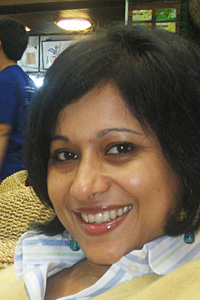For India to embrace the evolving understanding of sexual rights by removing an archaic legacy of colonial time placing individuals at the centre of the argument is a watershed moment in the history of South Asia and beyond. It was inspiring to find Justice Deepak Misra began quote Goethe "I am what I am, so take me as I am" in his ruling.
On Sept 6, the Supreme Court of India repealed Section 377 of the Indian Penal Code, which criminalised homosexuality, in response to a petition filed by representatives of the lesbian, gay, transgender and intersex communities, collectively known as LGBTI. For nearly 160 years, this historical ban has persisted in the criminal laws of India, Bangladesh, Pakistan, Sri Lanka, Singapore, Malaysia, and other former British colonies, encroaching on the private lives of LGBTI communities. In the 1860s, the British Parliament passed the Offences against the Person Act, propelled by a mix of concern about sexual and infectious diseases and the comfort taken in conventional sexual identity, labeling same-sex physical relations an "unnatural offence" and a criminal act in the absence of consent. When the Indian Penal Code introduced Section 377 in 1862, the clause that qualified same-sex acts as legal in the case of consent was dropped. Although the Indian law rarely led to prosecutions, it was routinely wielded as a threat by conservatives, law enforcement agencies, and extortionists and created a culture of stigma, prejudice, hate, and discrimination.
While Britain eventually revised and repealed elements of the law in 1885, Section 377 lingered in former British colonies post-independence and played a critical role in shaping the culture of sexual norms and health in the Commonwealth. Once a region of diverse religious views and sexual pluralism, the Indian Subcontinent yielded to complex conservatism coexisting with tolerance to sexual violence towards women and those marginalised.
Even at the peak of "Bharat Char" struggle, in spite of all the changes to traditional political and legal systems, the new Constitutions and Penal Codes of India and Pakistan -- respectively adopted in 1949 and 1956 -- retained Section 377 and its equivalent. Bangladesh followed the same path after its independence from Pakistan in 1971. Today, of the 72 countries in which homosexuality is illegal, 36 criminalise and punish same-sex relationships through a variation of Section 377. In all of these countries, the criminal ban was justified by notions of morality; public obscenity; national security; and traditions.
Despite progress in championing human rights and democratic values in broader public contexts, and signing the UN Declaration of Human Rights, these countries ignored or more vehemently denied the sexual and reproductive rights of their populations as a whole. At the centre of the moral arguments lay conventional gender roles that define the reproductive rights of men and women and invoke fear that civilisation is threatened where sex is not connected to reproduction.
Until now, the Indian courts have bowed to the sexual majority. While human rights have figured more prominently in India than other countries, sexual rights remained taboo.
In the wake of India's milestone judgment, two very important questions must now be addressed. The first concerns whether or not countries that maintain the equivalent of Section 377 will follow India's lead in repealing these archaic provisions. While many countries in Asia, including Bangladesh, Pakistan, Nepal, and Thailand, have made significant progress in recognising the transgender population, much work remains to advance the individual's right to sexual orientation and gender expression, the right to marry and form a family, and associated rights of inheritance.
In many countries, religious doctrine and political dynamics disproportionately impact the lives of LGBTI populations, especially those from the poorer strata of society. Systematised stigma and prejudice, harassment, blackmail, and persecution have often led to the gross violation of rights of privacy, dignity, and security, and the denial of legal protections -- as witnessed with the brutal killing and prosecution of sexual minorities in several Asian countries. In 2016, Indonesia departed from a tradition of tolerance in launching a series of anti-LGBT actions that included condemnation of same sex relationships, proposed "cures" for homosexuality, police raids of gay venues and gatherings, and ban on sympathetic media reporting.
The second question is whether countries that have laboured under traditional practices will begin to focus on sexual rights and gender diversity in the context of constitutional and broader law and internationally recognised human right principles. No legal system should be dictated by public opinion, even if the opinion is held by the majority of the population.
Applying human rights principles in the most personal dimensions of daily life is a new approach that is only beginning to receive due attention with the growing recognition of sexual and reproductive rights. We are collectively learning how and why it is important to allow individuals to exercise their unique gender expressions and sexual rights. This will require us to redefine gender, abandoning the traditional "binary" understanding of gender that defines separate and often non-complementary roles for men and women. The new understanding of gender must focus on the diversity of individuals and sexual orientation of each individual. A gender revolution is in order.
Much work lies ahead, and it may take years to achieve broader societal change. The process calls for systematic public education, revision of the traditional language and narratives used to describe various gender dimensions. In this way, we can secure the right to equality, dignity, and liberty that our constitutions and international human rights instruments promise.
Lazeena Muna-McQuay, phd, provides technical support to the UN and other international organisations on sexual health, human rights and gender equality issues.
